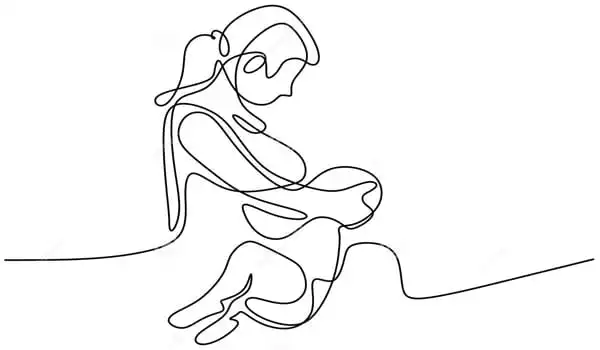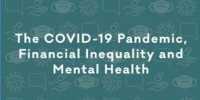A new study led by UCLA Health experts discovered that women over the age of 50 who had breastfed their newborns did better on cognitive tests than women who had never breastfed. The findings, published in Evolution, Medicine, and Public Health, imply that nursing may improve postmenopausal women’s cognitive function and may have long-term advantages for the mother’s brain.
“While many studies have found that breastfeeding improves a child’s long-term health and well-being, our study is one of the few that has looked at the long-term health effects for women who had breastfed their babies,” said Molly Fox, PhD, the study’s lead author and an Assistant Professor in the UCLA Departments of Anthropology and Psychiatry and Biobehavioral Sciences. “Our findings, which indicate higher cognitive performance in breastfed women over 50, suggest that nursing may be ‘neuroprotective’ later in life.”
Cognitive health is crucial for aging persons’ well-being. However, when cognition begins to deteriorate after the age of 50, it can be a strong predictor of Alzheimer’s Disease (AD), the largest type of dementia and cause of disability among the elderly, with women accounting for roughly two-thirds of those affected.
What we do know is that there is a positive correlation between breastfeeding and a lower risk of other diseases such as type 2 diabetes and heart disease, and that these conditions are strongly linked to a higher risk of AD.
Helen Lavretsky
Many studies also show that different stages of a woman’s reproductive life, such as menstruation, pregnancy, breastfeeding, and menopause, can be associated with a higher or lower risk of developing various health conditions, such as depression or breast cancer, but few studies have looked at breastfeeding and its impact on women’s long-term cognition. Among those that have, there has been mixed data as to whether breastfeeding is associated with improved cognitive performance or an increased risk of Alzheimer’s disease in postmenopausal women.
“What we do know is that there is a positive correlation between breastfeeding and a lower risk of other diseases such as type 2 diabetes and heart disease, and that these conditions are strongly linked to a higher risk of AD,” said Helen Lavretsky, MD, senior author of the study and a professor in the Department of Psychiatry and Biobehavioral Sciences at UCLA’s Semel Institute for Neuroscience and Human Behavior.
“Because breastfeeding has also been found to help regulate stress, promote infant bonding, and lower the risk of post-partum depression, implying acute neurocognitive benefits for the mother, we suspected that it could also be associated with long-term superior cognitive performance for the mother,” Dr. Fox added.

To find out, the researchers examined data from women who took part in two cross-sectional randomized controlled 12-week clinical trials at UCLA Health: 1) Depressed subjects were included in the study “Brain Connectivity and Response to Tai Chi in Geriatric Depression and Cognitive Decline.” 2) The “Reducing Alzheimer’s Disease Risk in High-Risk Women Through Yoga or Memory Training” study, which included non-depressed subjects with some subjective memory complaints and a risk for heart disease.
115 women chose to participate in the two studies, with 64 classified as depressed and 51 classified as non-depressed. All individuals performed a battery of psychological tests designed to assess learning, delayed recall, executive functioning, and processing speed. They also completed a questionnaire about their reproductive history, which included questions on when they first began menstruating, the number of complete and incomplete pregnancies, the length of time they breastfed each kid, and their age at menopause.
Notably, none of the individuals had dementia or other mental illnesses such as bipolar disorder, alcohol or drug dependence, neurological diseases, or other limitations that prevented them from participating or taking any psychoactive medications. There was no difference in age, race, education, or other cognitive parameters between depressed and non-depressed people.
The researchers’ study of data acquired from questionnaires on the women’s reproductive history found that approximately 65 percent of non-depressed women had nursed, compared to 44 percent of depressed women. All non-depressed subjects reported at least one completed pregnancy, but 57.8 percent of depressed people reported at least one completed pregnancy.
The cognitive tests also found that women who had nursed outperformed those who had not breastfed in all four cognitive measures evaluating learning, delayed recall, executive functioning, and processing, regardless of whether they were depressed or not.
Separate analysis of the data for the depressed and non-depressed groups found that in the women who were not depressed, all four cognitive domain scores were substantially linked with breastfeeding. However, just two of the cognitive domains — executive functioning and processing speed — were substantially linked with breastfeeding in depressed women.
Surprisingly, the researchers discovered that nursing for a longer period of time was connected with improved cognitive ability. When all of a woman’s breastfeeding time was added up, they discovered that women who did not breastfeed had significantly lower cognitive scores in three out of four domains compared to women who had breastfed for 1-12 months, and in all four domains compared to women who had breastfed for more than 12 months. Women who have breastfed for the greatest periods of time scored the highest on cognitive tests.
“Future research will be required to investigate the association between women’s nursing history and cognitive function in bigger, more geographically diversified groups of women. Given that women today breastfeed less frequently and for shorter lengths of time than in the past, it is critical to better understand the health implications of breastfeeding for women” Dr. Fox stated.















